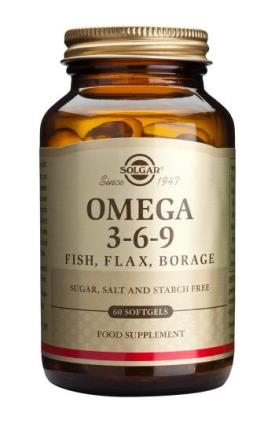The Importance of Omega 3

LaurenScott ANutr
Omega-3 fits into the polyunsaturated fatty acid (PUFA) family. Our bodies aren't able to make this on their own so we need to include sources of omega-3 in our diets. There are several forms of Omega-3 but the most researched are:
- Alpha-linolenic acid (ALA)
- Eicosapentaenoic acid (EPA)
- Docosahexaenoic acid (DHA)
ALA can be converted into EPA and DHA but fairly inefficiently, therefore it is best to consume a variety of all three sources of omega-3.
Sources of EPA and DHA include oily fish, such as salmon, mackerel, kippers, pilchards, trout and herring. Fresh tuna (not tinned) was previously included within the category of oily fish, however recent research shows that the levels of poly-unsaturated fatty acids in fresh tuna do not meet the level to be classed as an oily fish. Therefore, tuna (fresh, tinned, etc) is now grouped into the same category as white fish (UK's official advice was changed on 25th September 2018). EPA and DHA can also be found in omega-3 fortified products such as milk, yoghurts, eggs and spreads. ALA can be found in chia seeds, linseeds, hemp seeds, walnuts, pecans, tofu, rapeseed oil and green leafy veg.
You may have associated omega-3 with heart health, and this still stands true. Research has strongly suggested that including omega-3 sources in your diet keep your heart healthy, i.e. it contributes to normal functioning of the heart, normal blood pressure and cholesterol levels. Omega-3 has also been shown to contribute to normal brain function and vision.
For those who don't include oily fish in their diet, it is a good idea to include a variety of sources of ALA (seeds, nuts, tofu, leafy green veg, fortified foods, etc). Although the research shows that supplementing with omega-3 doesn't provide the same amount of benefit as including food sources of omega-3, those with low levels may consider using supplements. For adults, look for a supplement which contains 450mg of EPA and DHA per day. Vegans have the option of taking an algae-derived supplement. Look for supplements with a minimum of 200mg of DHA.
Overall, including a variety of omega-3 sources in your diet is beneficial to your health, but if you aren't a fan of fish or it doesn’t form part of your diet, there are options available so you are still able to reap the benefits.

